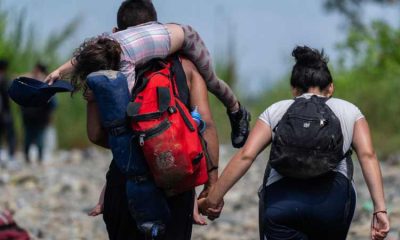Central America
Migrant vessel tragedy off Panama: Deaths and disappearances reported
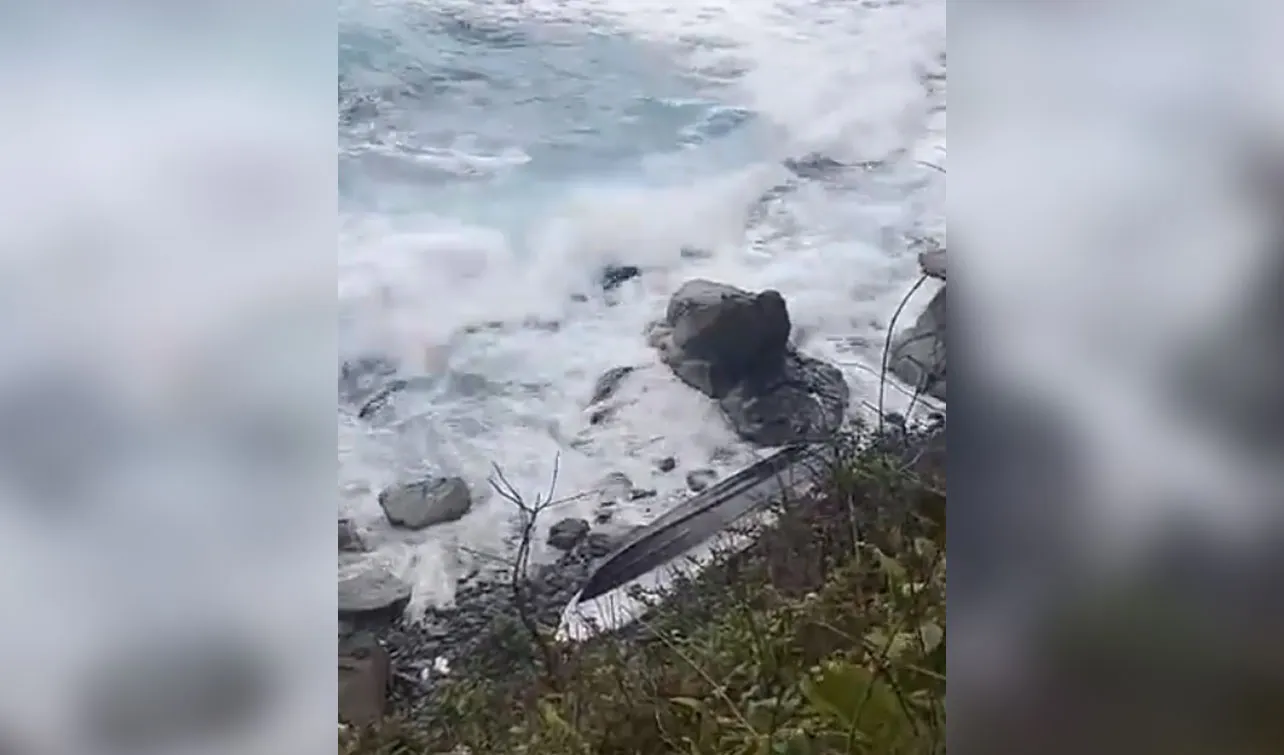
In a tragic maritime incident, a migrant boat foundered near Panama’s Caribbean coastline, adjacent to the desolate Darien jungle, resulting in an unspecified number of fatalities, as disclosed by the Panamanian border police on Wednesday.
The National Border Service (Senafront) announced in an early morning press release the grim discovery of deceased migrants, victims of drowning. The exact death toll remains unclear, prompting the deployment of search teams to the disaster site.
Reports from Telemetro, citing a correspondent in Puerto Obaldia, indicated there were 14 survivors, alongside four confirmed deaths and seven individuals missing, from the vessel which originally carried 25 migrants.
Central America
Nicaragua revokes legal status of 10 more NGOs, bringing total to over 5,600
The Nicaraguan government canceled the legal status of 10 more non-profit organizations on Friday (March 28, 2025), including the Swiss Foundation for Development Cooperation, bringing the total number of non-governmental organizations (NGOs) shut down since December 2018 to over 5,600.
According to the Ministry of the Interior, the Swiss Foundation for Development Cooperation, which had been registered since March 9, 2002, was found to be in non-compliance for failing to report its financial status for 2024 and for having an expired board of directors.
Among the 10 NGOs whose legal status was revoked were religious organizations, educational groups, consumer associations, and aquaculture organizations, all dissolved “voluntarily” or closed under similar reasons.
As of today, more than 5,600 NGOs have been dismantled following the popular protests that erupted in April 2018 in Nicaragua. In most cases, the assets of these organizations have been ordered to be transferred to the state.
Central America
Panama’s president declares Darién gap ‘closed’ amid sharp drop in migrant flow
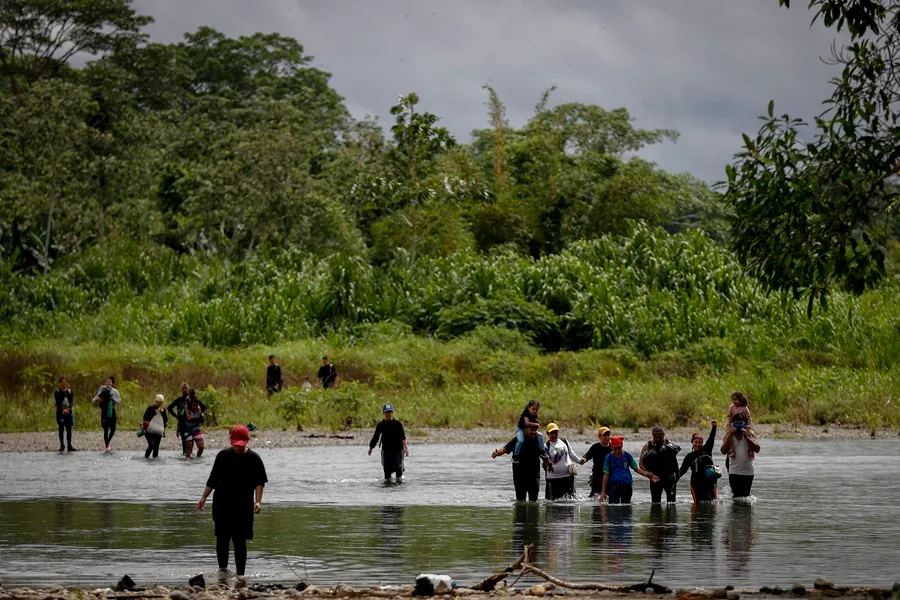
After years of receiving thousands of migrants daily traveling from the south towards the United States, the dangerous Darien jungle crossing at the Panama-Colombia border can now be considered closed, said Panamanian President José Raúl Mulino on Thursday.
“For all practical purposes, the Darien border is closed… We no longer have a migration problem coming from Colombia,” Mulino stated during his weekly conference, announcing that the migrant flow through this crossing had dropped by 97% in March compared to the same period in 2024.
Only 194 migrants have crossed the Darien from south to north this month, according to official data.
The more restrictive migration policies of U.S. President Donald Trump, since taking office on January 20, have impacted the situation, along with Panama’s increased control over the migration flow, according to experts and authorities.
Several weeks ago, the Panamanian government announced the closure of two of the three shelters located in the Bajo Chiquito and Lajas Blancas areas in the Darien, which had been set up to accommodate migrants due to the low number of people they were receiving.
Panama has been heavily criticized by human rights groups for detaining migrants without their passports or cell phones, and under harsh conditions in these camps.
Regarding the flow of migrants traveling from north to south, many of whom are returning due to the impossibility of reaching the United States, “it has grown a little, but it has grown,” said Mulino. Most migrants continue their journey back to their countries of origin.
The majority of migrants in both cases are Venezuelan, according to the president.
Central America
Nicaragua’s new judicial law consolidates power in Ortega and Murillo’s hands

The National Assembly (Parliament) of Nicaragua approved a law on Thursday that grants the country’s co-presidents, Daniel Ortega and Rosario Murillo, the authority to appoint the head of the Supreme Court of Justice for a six-year term, as well as the members of the National Council of Administration and Judicial Career.
The Organic Law of the Judicial System of the Republic of Nicaragua, proposed by Ortega and Murillo, was approved unanimously and swiftly by the Sandinista-controlled legislature during a session held in Managua.
This law, which repeals the Organic Law of the Judiciary, subordinates the justice system to the Presidency of the Republic, currently held by Ortega and Murillo, according to the text.
The new law establishes the figure of the judicial body rather than a state power and reduces the number of magistrates from 16 to 10.
-

 International4 days ago
International4 days agoFederal court blocks Trump’s use of Enemy Alien Act for deportations
-

 Central America4 days ago
Central America4 days agoKristi Noem in Latin America: Talks with Bukele on expulsions and security policies
-

 Central America4 days ago
Central America4 days agoHonduran group in U.S. pushes for voter registration to prevent election fraud
-
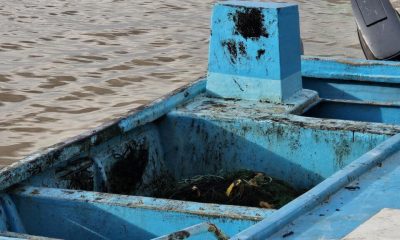
 International4 days ago
International4 days agoEcuador oil spill worsens as containment dam collapses
-

 Central America3 days ago
Central America3 days agoNicaragua denounces Costa Rica’s position in SICA as aligned with foreign interests
-

 Central America3 days ago
Central America3 days agoNicaragua’s new judicial law consolidates power in Ortega and Murillo’s hands
-
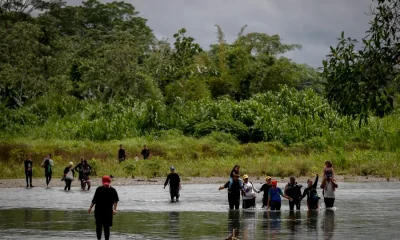
 Central America3 days ago
Central America3 days agoPanama’s president declares Darién gap ‘closed’ amid sharp drop in migrant flow
-

 International3 days ago
International3 days agoMarco Rubio warns Venezuela against military action against Guyana
-

 International17 hours ago
International17 hours agoSon of journalist José Rubén Zamora condemns father’s return to prison as “illegal”
-

 International17 hours ago
International17 hours agoMiyazaki’s style goes viral with AI but at what cost?
-
Central America2 days ago
Nicaragua revokes legal status of 10 more NGOs, bringing total to over 5,600













